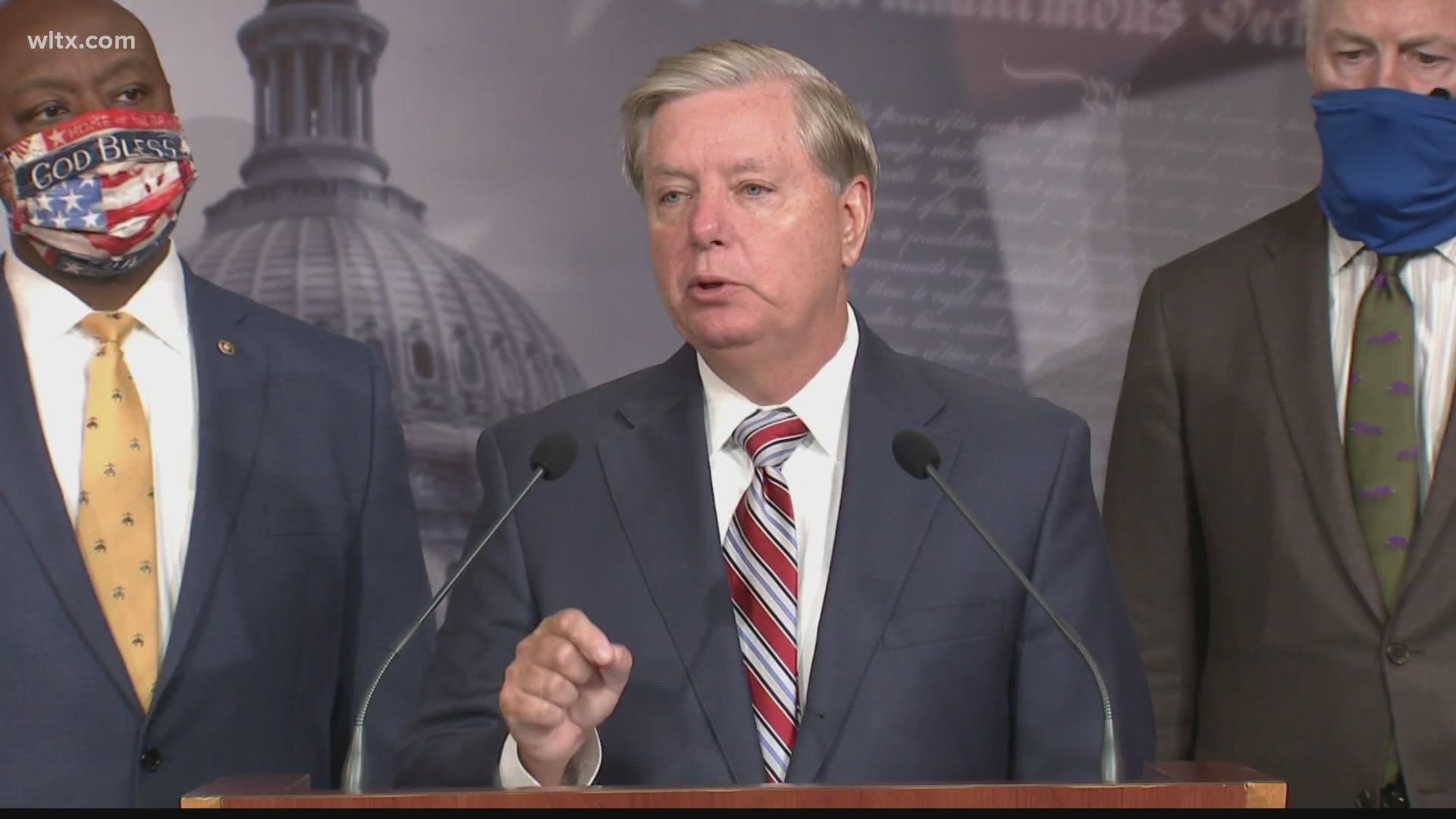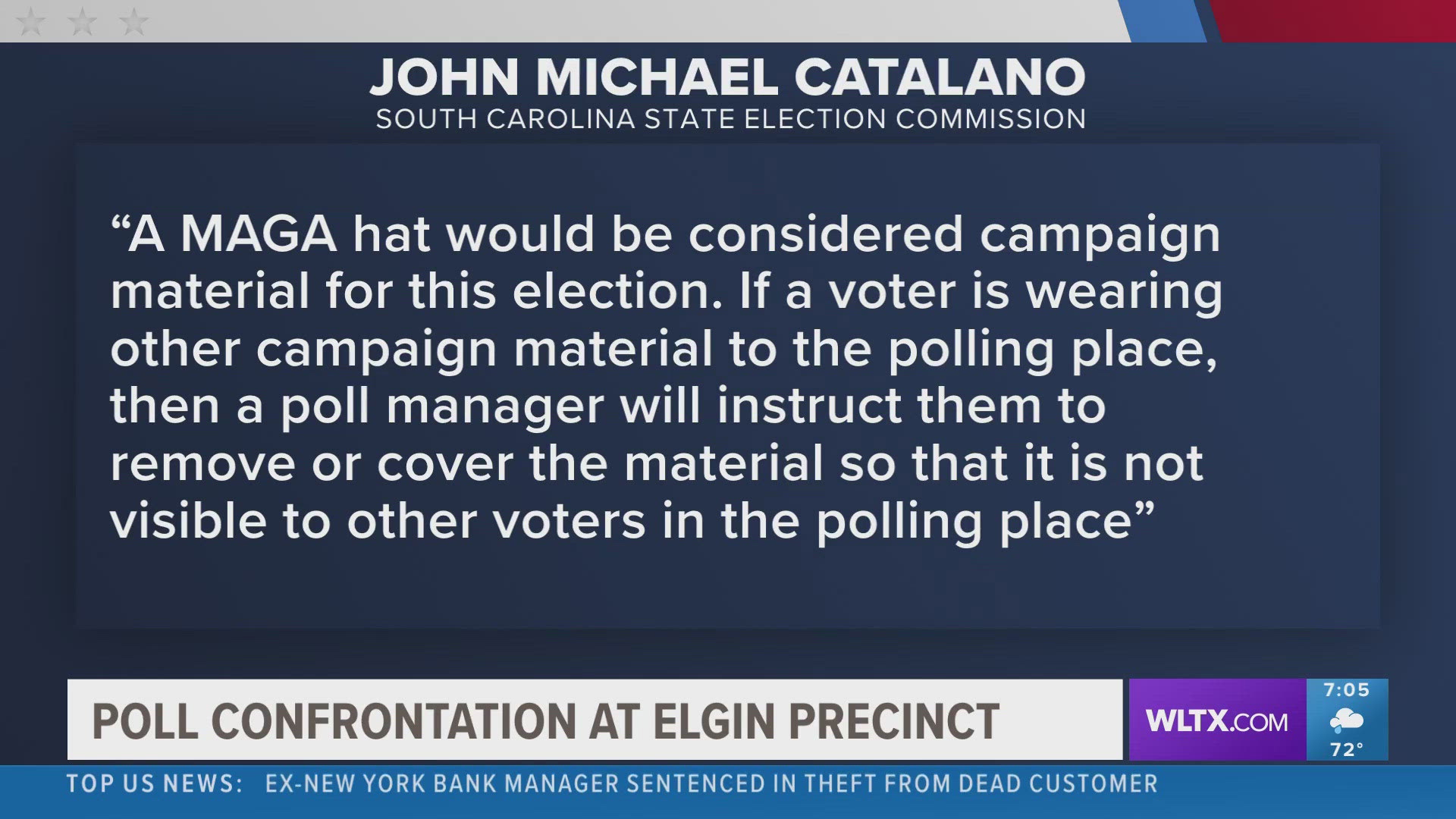COLUMBIA, S.C. — This year's race for the South Carolina Senate is the most contested in decades, as incumbent Senator Lindsey Graham and challenger Jaime Harrison are locked in what polls say is a tight contest.
The race is already the most expensive in South Carolina political history, with millions of dollars already spent on TV and online ads with plenty more expected to be spent in the comings weeks.
The last time a Democrat won a U.S. Senate seat was back in 1998, when Fritz Hollings won his final term in office.
WLTX has compiled mini-biographies of each candidate and summaries of where the two men stand on main issues of the economy, health care, and the military.
The Candidates
Name: Lindsey Graham, Republican
Age: 65, born in Central, single
Education: graduated DW Daniel High School, joined Reserve Officers’ Training School (ROTC), graduated University of South Carolina (1977), University of South Carolina School of Law (1981)
Background: website: lindseygraham.com
- Commissioned officer in the Judge Advocate General’s Corps (JAG) in the US Air Force (USAF) in 1982, chief prosecutor for USAF in Europe (1984-1988, Frankfort, Germany), SC Air National Guard (1989-1995), USAF Reserve (1995-2015; promoted to lieutenant colonel in 1998, colonel in 2004, received Bronze Star (2014) for service as senior legal advisor to USAF in Iraq and Afghanistan during period from August 2009-July 2014)
- 1992-1993 private lawyer
- 1993-1995 Elected to SC House of Representatives, District 2 (Oconee)
- 1995-2003 US House of Representatives, District 3 (Abbeville, Anderson, Edgefield, Greenwood, Laurens, McCormick, Oconee, Pickens, Saluda and portions of Greenville and Newberry counties)
- 2003-present won seat vacated by Strom Thurmond
- 2015 launched presidential campaign which lasted from June to December, was an outspoken critic of fellow candidate Donald Trump
- 2019 Chair of Senate Judiciary Committee
Name: Jamie Harrison, Democrat
Age: 44, born and raised in Orangeburg; married to Marie Boyd, 2 children
Education: graduated Orangeburg-Wilkinson High School in 1994, Yale University (1998) and Georgetown University Law Center (2004)
Background: website: jaimeharrison.com
- Worked as a teacher at Orangeburg-Wilkinson for a year after graduating Yale.
- Director of floor operations for US Rep. Jim Clyburn while Clyburn was House Majority Whip.
- Served as vice chair of SC Democratic Party
- Lobbyist for the Podesta Group, representing clients such as Bank of America, Wells Fargo, Berkshire Hathaway, Walmart, General Motors, Google, Merck and Lockheed Martin. He also lobbied for United Way Worldwide and the Association of Public and Land-grant Universities. https://www.aplu.org/
- Served as the chair of the SC Democratic Party (2013-2017) and as an associate chairman of the Democratic National Committee (DNC)
CAMPAIGN ISSUES
HEALTHCARE
Graham: Opposes Medicare for All, openly tries to repeal the Affordable Care Act (Obamacare); says he believes no American should be denied medical coverage or insurance due to a preexisting condition but in 2017 he introduced the Graham-Cassidy amendment that would have removed protection for preexisting conditions and would have allowed insurers to charge higher prices
Harrison: Supports expanding health care to those who cannot afford it, lowering the cost of insurance and prescription drug prices, protecting people with preexisting conditions and stopping the closure or rural hospitals
JOBS and ECONOMY
Graham: Supports major infrastructure bill to rebuild roads, bridges, ports and airports; expand affordable electricity and broadband services in rural SC. In the past, Graham has worked to bring large manufacturing corporations such as Volvo and Boeing to the state.
Harrison: Supports investment in infrastructure, including affordable broadband access to rural areas. Would repeal the 2017 tax cuts to corporations and wealthy and use the revenue for expanding apprenticing opportunities, small business creation and tax breaks for middle- and working-class families
THE MILITARY
Graham: Supports an interventionist approach to foreign policy (troop deployment). Supports better pay for US troops and state-of-the-art equipment for soldiers
Harrison: Supports a diplomatic, “holistic” approach to foreign policy. Supports veterans’ increased access to mental health care, job readiness transitional training to civilian life, military base housing, VA accountability




